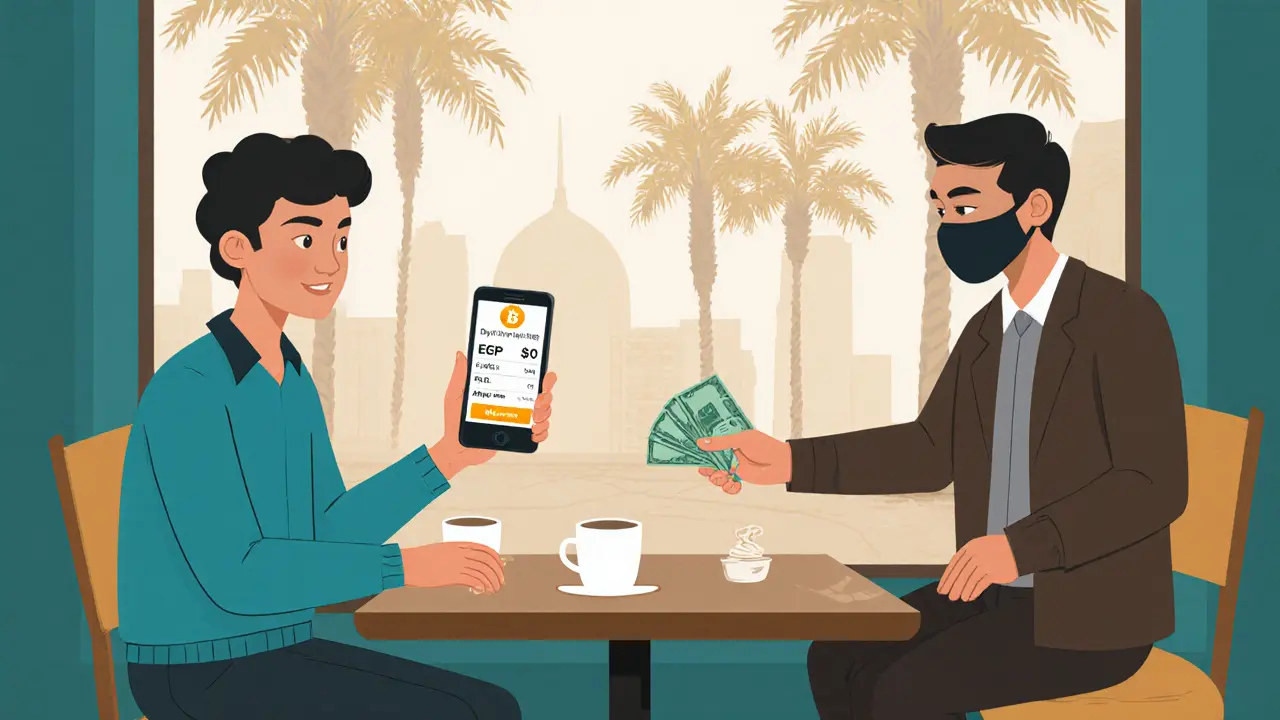Egypt Crypto P2P: Peer-to-Peer Trading Guide for Local Bitcoin and Altcoin Users
When people in Egypt trade cryptocurrency without banks, they’re using peer-to-peer crypto, a direct way to buy and sell digital assets between individuals, often using local currency like the Egyptian pound. Also known as P2P crypto trading, it’s become essential for Egyptians facing strict banking controls, currency devaluation, and limited access to global exchanges. Unlike centralized platforms, P2P lets you trade directly with neighbors, freelancers, or small businesses — no middleman, no approval, no delays.
This model isn’t just a workaround — it’s a lifeline. Over 2 million Egyptians now use P2P platforms like Paxful, LocalBitcoins, and Binance P2P to get USD-equivalent crypto, pay for imported goods, or send money to family abroad. The government hasn’t banned crypto, but it also doesn’t officially recognize it, leaving users in a gray zone. That means you’re on your own for security, dispute resolution, and taxes. Some traders use cash meetups; others rely on mobile wallet transfers through apps like Fawry or Vodafone Cash. Either way, trust is everything. A bad trade can cost you your entire savings — and there’s no customer service line to call.
What makes Egypt’s P2P scene different from other countries? It’s not just about volume — it’s about necessity. With inflation hitting 30% in 2024 and banks limiting dollar withdrawals, crypto isn’t speculative here — it’s survival. You’ll find students trading USDT for pounds to pay for online courses, freelancers receiving payments in BTC instead of waiting months for PayPal, and small shops accepting crypto as a hedge against currency swings. The most active traders aren’t tech experts — they’re everyday people who learned how to verify IDs, check trade history, and spot scams in a matter of weeks.
But the risks are real. Fake escrow services, impersonators posing as buyers, and phishing links disguised as P2P apps are everywhere. And while the Central Bank of Egypt warns against crypto, enforcement is patchy — which means scammers operate with little fear. The best protection? Stick to platforms with verified sellers, never release crypto before cash clears, and always use two-factor authentication. Avoid any offer that sounds too good to be true — especially "guaranteed" high premiums for USDT.
Below, you’ll find real reviews and breakdowns of platforms, scams, and strategies used by Egyptian crypto traders right now. No theory. No fluff. Just what works — and what gets people locked out of their accounts.
How Egyptians Trade Crypto Underground with P2P Methods
Despite strict banking bans, millions of Egyptians trade crypto through P2P platforms like Bybit and Binance, bypassing regulations with cash, mobile payments, and direct transfers. Here's how it works - and why it won't stop.
Details +